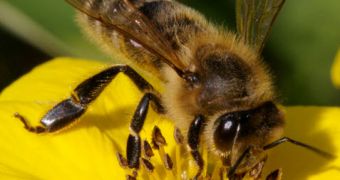In the aftermath of several scientific papers arguing that certain pesticides negatively impact on bee colonies, the European Union saw fit to officially ban their use for a period of two years.
As reported on several occasions, bees are of utmost importance when it comes to pollinating crops. Thus, the decision to ban the use of bee-harming pesticides need be seen as an attempt to safeguard agricultural practices.
The pesticides targeted by this ban are neonicotinoid ones. According to Mongabay, their specific names are as follows: imidacloprid, clothianidin and thiamethoxam.
These pesticides have long been blamed for the decline of bees in both Europe and North America.
However, the companies responsible for manufacturing and marketing them maintain that the insects are not in the least harmed by these pesticides.
Quite the contrary, their decline need be linked to a parasitic mite known to the scientific community as varroa.
The same source informs us that, as far as some specialists are concerned, it is a combination of these pesticides and said parasitic mite that explains the decline of bees.
The ban on the use of neonicotinoid pesticides in agriculture is expected to be up and running in a matter of months. More precisely, high officials say that it will have come into effect by this year's summer.
Despite the fact that EU's issuing this ban comes as good news, environmentalists say that two years are not enough for bees to be able to make a comeback.
“At last, the politicians are starting to listen to the science. This is a good start, but this ban will not be robust enough,” reads a statement issued by Vanessa Amaral-Rogers, pesticide officer with NGO Buglife.
“In reality, a two year suspension is not enough to see our bee populations recover. Neonicotinoids have a half-life (the time taken for half of the chemical to disappear) in soil of over three years, and will still be used on winter crops. The next step is to put a monitoring program in place which will assess how all pollinators, not just honeybees, are doing as a result of the ban,” Vanessa Amaral-Rogers further argued.

 14 DAY TRIAL //
14 DAY TRIAL //